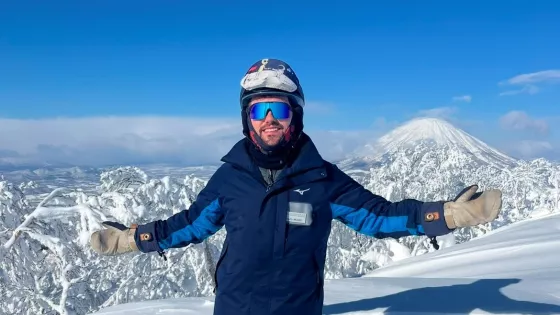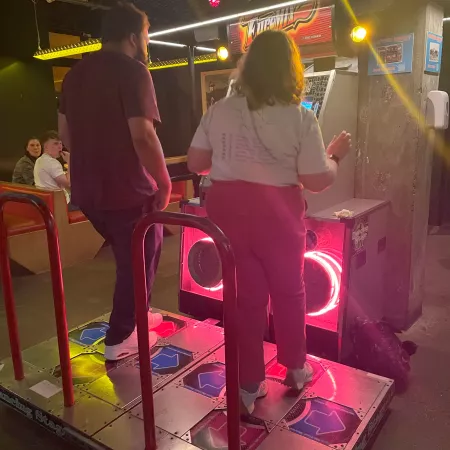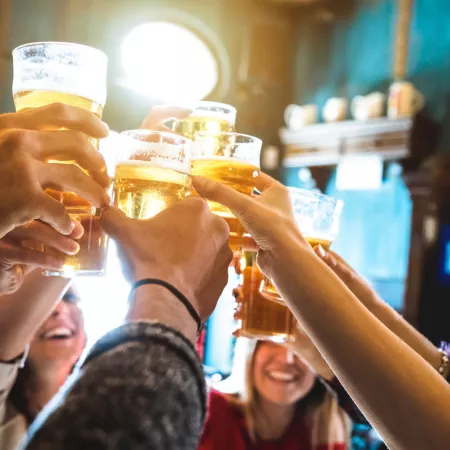Miles’ life was knocked off balance by a first seizure at 14, followed by many others as he went through adolescence and university. But turning his back on alcohol and reaching out for therapy helped get him back on his feet and forge a new life as a snowsports instructor in Canada, Switzerland and Japan.
The First Signs: A Fog Descends
At 25, Miles is no stranger to slips and tumbles – he’s spent three seasons teaching snowsports in Canada, Switzerland, and Japan. But his most difficult challenges haven’t been on the slopes.
His first absence seizure struck at 14, just after the school bell rang.
I have this fog in my head… I just remember walking around school, doing loops. I was extremely confused. I didn’t know what was happening.
When his mum picked him up, he broke down in tears.
I thought I was losing my mind. I felt like I had dementia
That moment led to a series of medical tests and a diagnosis of epilepsy.
Escalation and Triggers: The Teenage Years
Despite the diagnosis, Miles initially believed his condition wasn’t as severe as others’. But things worsened. At 15, he had his first tonic-clonic seizure on a camping trip. Seizures became more frequent, especially, as he would soon discover, when triggered by alcohol, drugs, stress, and lack of sleep.
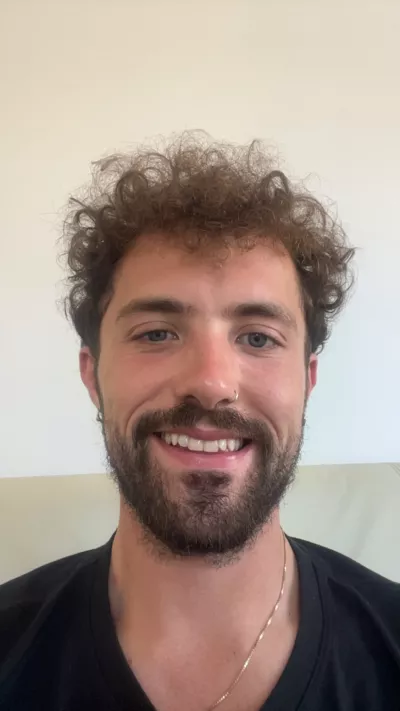
University Pressures: Drinking, Drugs, and Denial
University life in Leeds brought new pressures.
The culture around drinking is pretty intense. In Freshers’ Week, people are expected to get drunk every day.
Eventually, even small amounts of alcohol triggered seizures.
It started to happen every time I got drunk. Never on the night – always the morning after. And stimulant drugs like cocaine and MD always caused seizures the next day.
Fitting In and Falling Apart
Fuelling the drive to drink, he says, was a desire to fit in.
If you don’t drink, you’re seen as quite odd.
He often kept quiet about his epilepsy, unsure how others would react. His bisexuality added another layer of self-doubt, and pressure from family and doctors to stop drinking only made him more defiant.
Drinking and my epilepsy felt like gambling. The worse my self-doubt got, the more shame I felt. And to escape that, I’d want to keep drinking. It was a harsh cycle. I had all these toxic ideas that I needed it.
Breaking the Cycle: A Turning Point
That cycle lasted seven years. Despite it, he earned a First in Philosophy. But a night out after graduation marked a turning point.
I only had three pints. The next day, I had a full tonic-clonic seizure in front of all my mates. My best friend, Dom, cried his eyes out. He said, ‘Have you really thought about quitting drinking?’
That was his last seizure. After taking stock of his life and the advice of his loved ones, he stopped drinking entirely.
Recovery and Reconnection
Unlike many, Miles had a clear diagnosis early on, and he says his current medication, sodium valproate, works well after some trial and error. But giving up alcohol was a struggle. Therapy became another turning point.
I wanted better tools to feel more comfortable with myself. Making that step was scary. I had to relearn how to connect with myself again.
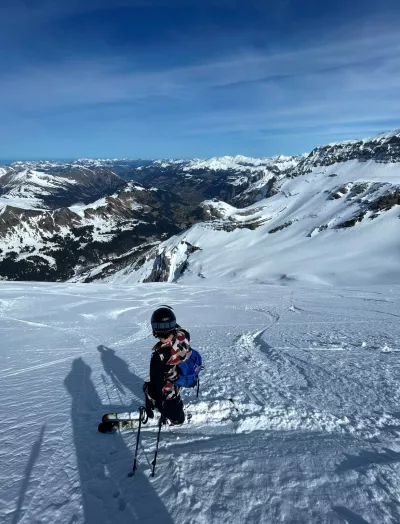
A New Chapter: Confidence and Connection
But things did begin to change.
I started travelling and seeing these beautiful places and meeting these amazing people. Now I believe we all have this innate pool of confidence in us.
He emphasises the importance of connection.
You can have great support from family and friends, but I’d definitely recommend speaking to others with epilepsy. It shows you’re not alone.
Looking Ahead: A Life Reimagined
Now over three years sober and seizure-free, Miles is learning to drive and considering a Master’s in Psychology. While his future may lead him away from the slopes, a piece of his heart will always remain there.
The most rewarding part of teaching snowsports is helping people grow in confidence. Seeing someone go from terrified to loving it – that’s the most fun part.

